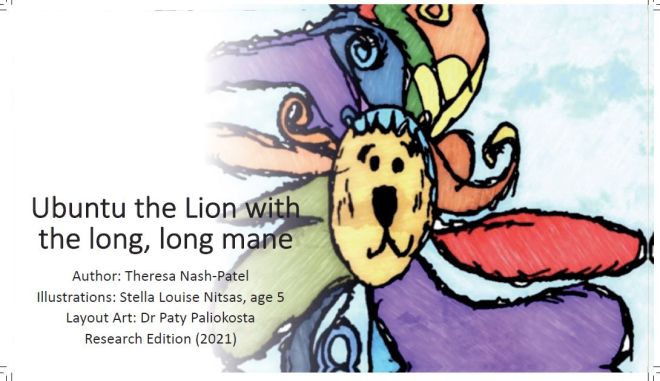Kingston University expert Dr Paty Paliokosta reflects on importance of promoting inclusion in the classroom
Posted Friday 16 December 2022

Dr Paty Paliokosta is an Associate Professor in Inclusive Education in the Faculty of Health, Science, Social Care and Education. She explains why she set up the Inclusion and Social Justice Special Interest Group and what she's working on at the moment.
What does the Inclusion and Social Justice Special Interest Group (SIG) do and why did you set it up?
I set up the group in 2010 to support teacher educators to champion inclusion in higher education and further support schoolteachers to create a learning environment where all pupils feel valued and are treated equally. The group was originally made up of staff from the then School of Education and the wider Faculty of Health, Science, Social Care and Education. It then expanded with the support of external organisations and two local charities. There are currently about 50 members and friends.
I set up the group because I saw a need to develop a space that encourages reflection and exploration around complex issues in a department known for its excellence in teaching and learning.
The group is made up of academics and community stakeholders from a range of disciplines and areas of expertise. We come together to discuss problems and challenges surrounding inclusion in the classroom and beyond. We also run events to support and empower teachers who work with pupils with a range of special educational needs and disabilities, and from a variety of social and economic backgrounds.
The aim is to help teachers, nurses, social workers and other professionals feel prepared to work in an accessible, fair and collaborative environment that is open to all perspectives. Our monthly teacher webinars with ADHD Embrace are one example of this, with future events to be held in 2023. These are available for free for all our Kingston students and are accessed by work-based learners, student teachers and school partners.
Could you introduce us to a project you have been working on recently?
 Dr Paty Paliokosta with Nicola Ryan from the University's School of Nursing and Professor Frank Muller from the University of Bremen at the Erasmus+ event in September.Since September, I have been an invited expert to an Erasmus+ funded project called All Means All, which kicked off with an event at the Free University of Bozen-Bolzano in Italy where I had the opportunity to collaborate with a lovely bunch of academics, researchers and self-advocates across Europe for a week.
Dr Paty Paliokosta with Nicola Ryan from the University's School of Nursing and Professor Frank Muller from the University of Bremen at the Erasmus+ event in September.Since September, I have been an invited expert to an Erasmus+ funded project called All Means All, which kicked off with an event at the Free University of Bozen-Bolzano in Italy where I had the opportunity to collaborate with a lovely bunch of academics, researchers and self-advocates across Europe for a week.
Working with self-advocates, researchers and teacher educators, the three-year project will deliver an open-access resource for all teachers to use, that will address structural disadvantages in education such as poverty, social class, culture, religion, disability and much more.
The resource will be an accessible, interactive and multimedia textbook for students in Initial Teacher Education. It will cover 60 topics in the field of education that address the needs of diverse learners in classrooms, schools and communities.
And what is your involvement in this project?
Since visiting the Free University of Bozen-Bolzano, I have been working with Nicola Ryan in the School of Nursing on a chapter for this resource that will give student teachers tools and tips to understand how activism can be addressed and encouraged in the classroom, promote empathy, and create an environment where pupils can talk openly about their diverse, lived experiences without facing prejudice or judgement.
There is a gap in the current curriculum when it comes to inclusion and diversity. We need to give teachers explicit examples based on real life narratives, to address disability, mental health, racism, poverty, and more, in the classroom and encourage pupils to exercise analytical thinking.
Our chapter draws on the award-winning Heritage lottery funded Fighting for our Rights Disability Awareness Resource pack which focused on understanding disability and empathy, and the lesson plans and tools that were co-created with student teachers to encourage open conversations between pupils on these issues.
It will also include examples of visual art and powerful storytelling that can be used to aid these discussions and promote activism in the classroom. All of these examples are drawn from the Heritage2Health project that was led by Associate Professor in the School of Nursing Theresa Nash Patel, which worked with artists including Eli Anderson and Bern O'Donoghue to show how art can offer insightful perspectives on healthcare and education.
The resource will also draw on narratives from contemporary disabled activists. For example, Souleyman Bah, a para-athlete who shared his journey to success and how he has overcome barriers along the way at a recent event held at the University for Disability History Month.

- Find out more about The Inclusion and Social Justice Special Interest Group.
- Find out more about the All Means All project.
Contact us
General enquiries:
Journalists only:
- Communications team
Tel: +44 (0)20 8417 3034
Email us



